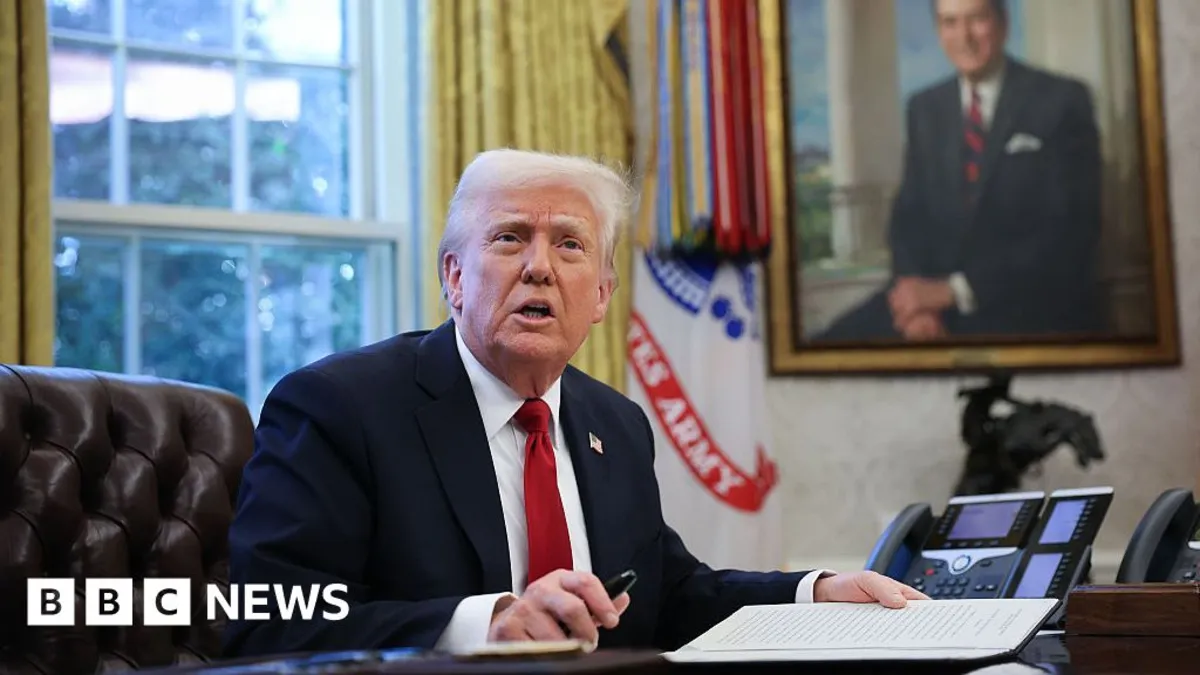
Donald Trump has recently made headlines with his announcement of a new 25% tariff on foreign-made vehicles and car parts, set to take effect on April 2. During an interview with NBC News, Trump expressed indifference towards potential price hikes from car manufacturers, stating that he hopes foreign carmakers will raise prices to encourage consumers to buy American-made cars. His comments reflect a broader strategy aimed at boosting domestic manufacturing and reducing reliance on imported vehicles.
Despite Trump's optimism, some analysts warn that these import tariffs could lead to temporary shutdowns in US car production. As companies grapple with increased costs, there is a risk that these expenses will be passed on to consumers in the form of higher vehicle prices. Trump's senior counselor for trade and manufacturing, Peter Navarro, urged Americans to trust the President, citing previous tariffs on China that he claims resulted in prosperity and price stability. Navarro asserted that inflation is unlikely to occur because "foreigners are going to eat most of it," emphasizing the United States' status as the world's largest market.
Shawn Fain, the leader of the United Auto Workers union, has criticized Trump's labor and immigration policies but acknowledged that tariffs could be a vital tool to bring manufacturing back to the US. Fain noted that companies have indicated they would consider relocating production to the United States if these tariffs are implemented, highlighting the potential for job creation and economic opportunity in the domestic auto industry.
The 25% import tax on carmakers was briefly put on hold in early March due to appeals from significant North American manufacturers, including Ford, General Motors, and Stellantis. However, Trump has indicated that he does not plan to delay the tariffs any longer. He mentioned that he would only consider negotiations if other countries are willing to provide something of "great value," underscoring his stringent approach to international trade.
In a related development, Trump has threatened to impose secondary tariffs of 25-50% on Russian oil if he believes that Vladimir Putin is stalling peace talks regarding Ukraine. He stated that if a ceasefire deal is not reached, these tariffs would be enacted within a month, emphasizing his strong stance against any perceived inaction from Russia.
As Trump moves forward with his tariff plans, analysts warn that these actions could exacerbate tensions with major trading partners. Sources from Downing Street have indicated that the UK is prepared to retaliate against US tariffs if necessary, arguing that their trading relationship with the US is relatively balanced compared to others. Prime Minister Sir Keir Starmer has expressed a desire to avoid a trade war, while other nations, like Germany and France, have pledged to respond firmly to Trump's tariffs. Canada has labeled the tariffs a direct attack, and China has accused the US of violating international trade rules.
As the April 2 deadline approaches for the implementation of Trump's tariffs, the implications for both the US auto industry and international trade remain significant. With potential price increases for consumers and strained relations with key allies, the long-term effects of these tariffs will be closely monitored by industry analysts and political leaders alike.